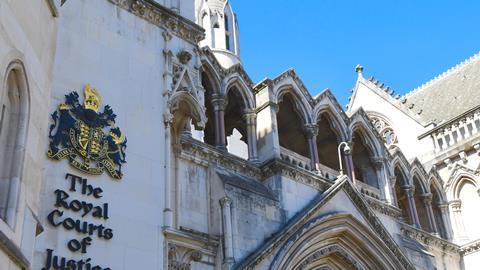A controversial 13-year-old test for determining what constitutes legal advice privilege (LAP) is being put under the spotlight at the Court of Appeal, where judges have been told a yardstick judgment was in fact very rigid.
Opening arguments in Director of the Serious Fraud Office (SFO) v Eurasian Natural Resources Corporation (ENRC) were heard this morning.
The court is considering whether documents prepared by the ENRC for an internal investigation into allegations of corruption should be protected by privilege. A High Court ruling last year favoured the SFO by ruling that privilege did not apply; the Law Society is intervening in the appeal in defence of professional privilege.
As predicted by the Gazette, arguments are focussing on the Court of Appeal’s interpretation of Three Rivers No 5 [EWCA 2005]. The Three Rivers case was brought by a local authority against the Bank of England after the collapse of the international bank BCCI. The claimants sought disclosure of documents prepared by the bank’s employees for its solicitors Freshfields Bruckhaus Deringer.
As the Bank of England had appointed three employees to communicate with Freshfields, the Court of Appeal held that they were ‘the client’ for the purpose of LAP. Documents prepared by other employees were not privileged.
Representing the ENRC today Bankim Thanki QC of Fountain Court said the ratio applied in Three Rivers was ‘very narrow’. He said: ‘The court accepted that [the appointed group] was Freshfields’ client but Three Rivers is only addressing that they [the group] were the client in this case,’ Thanki said. 'The basis of the finding that they were the client was because they were the only ones authorised to receive advice from Freshfields.’
Subsequent rulings have determined that only select groups of people and not all employees at an organisation should be determined as the ‘client’ meaning that documents prepared by anyone else in an organisation run the risk of not enjoying privilege, unless prepared for the purposes of expected litigation.
Thanki said: ‘It was wrong to treat them [other members of staff] as merely employees.’ He added that anyone who is an employee or former employee who learned facts during their employment should be treated as a client.
The Law Society is expected to have its arguments heard tomorrow. Dinah Rose QC, of Blackstone Chambers, is appearing on behalf of Chancery Lane.
Jonathan Fisher QC is appearing on behalf of the SFO.




























2 Readers' comments